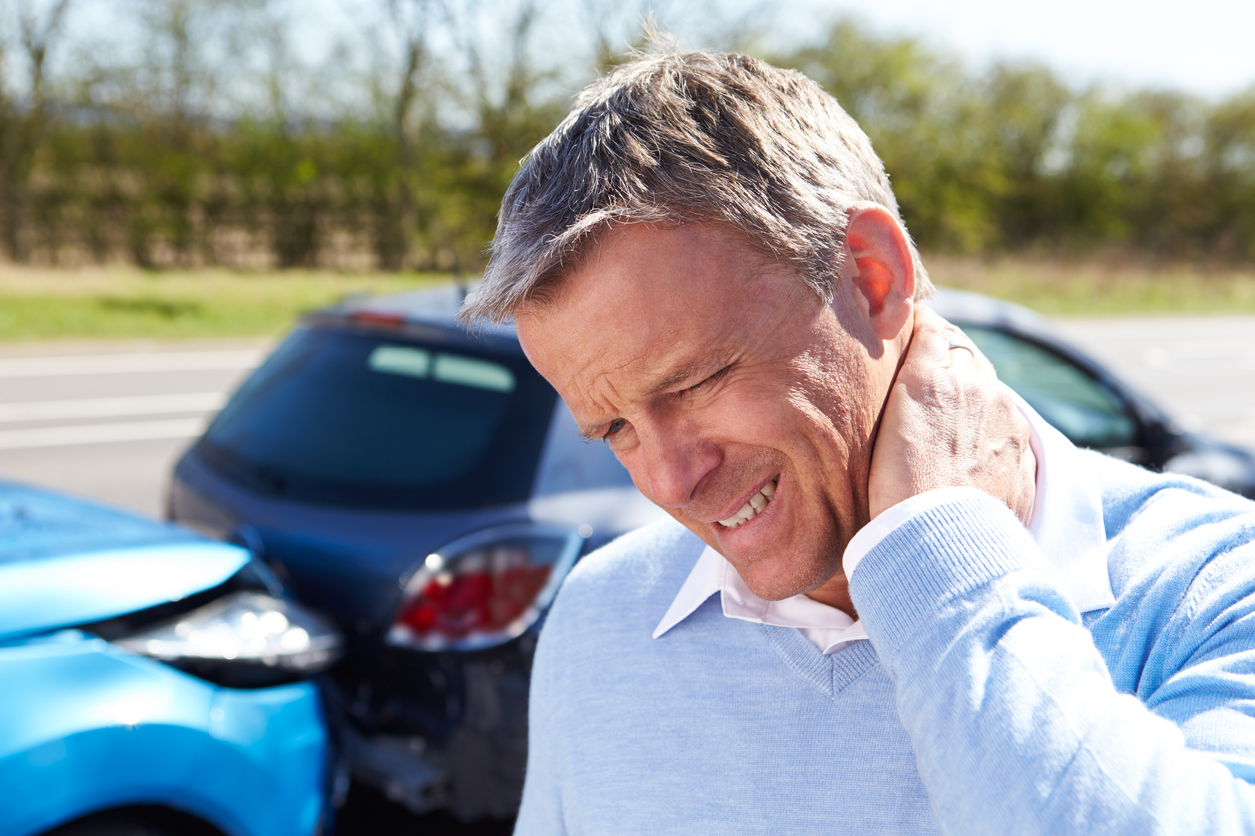Stephen Hasner | Car Accidents | August 14, 2020

Neck and back pain after a car accident can be debilitating for an accident victim. Prompt medical treatment after a car crash is strongly recommended. Identifying the cause of the neck and lower back pain is the first step in developing a treatment plan that provides relief from pain and allows healing.
Diagnosing Neck and Lower Back Pain After a Traffic Accident
The force of a collision combined with the jerking, twisting, and pulling motions of a motor vehicle accident can seriously damage your lower back and neck. The spine and soft tissues of the neck were not designed to handle the amount of forced and sudden movements caused by colliding vehicles. The injuries can range from mild neck or lower back pain to severe injuries that could require surgery to repair.
A doctor may use a variety of tools to diagnose your back and neck injuries after an automobile accident. The doctor reviews your symptoms and assesses your ability to stand, sit, lift objects, walk, and move your arms.
He may also order one or more imaging tests, such as x-rays, MRIs, and CT Scans. In some cases, a doctor may order a bone scan or nerve studies to identify what is causing the back or neck pain.
Once a doctor discovers what is causing the neck or back pain, the doctor develops a treatment plan. The treatment plan is based on the type of back or neck injury and the severity of the injury.
Types of Back and Neck Injuries Caused by Car Accidents
There are many different reasons why a person might feel lower back pain or neck pain after a car accident. Common neck and back injuries caused by motor vehicle accidents include, but are not limited to:
Whiplash
Whiplash is caused when the head is suddenly jerked back and forth. It is one of the most common types of neck injuries caused by traffic accidents, especially rear-end accidents. The muscles, ligaments, nerves, tendons, and discs in the neck can be severely damaged.
Most cases of whiplash heal within a few weeks without extensive medical treatment. However, some victims may suffer long-term chronic neck pain. The pain, stiffness, and limited range of motion can limit the person’s ability to work or perform certain activities.
Herniated Disc
Pressure on the back during a car accident can cause a spinal disc (cushion-like material between the vertebrae) to bulge out of place. The pressure caused by the bulging disc and the gel-like center of the disc leaking can cause severe pain and problems moving.
Spinal Stenosis
The pain from spinal stenosis is caused by the narrowing of the spinal column resulting in pressure on the spinal nerves. Spinal stenosis is most common in the lower back and neck. There are several causes of spinal stenosis, including car accidents that cause fractures or dislocations of the vertebrae.
Fractured Vertebrae
The vertebrae are the bones that protect the spinal column. In an accident, one or more vertebrae may be fractured. The fractured vertebra may include rotation, compression, extension, and flexion spinal fractures.
Spinal Cord Injuries
The spinal cord is vital for body functions. The spinal cord is the pathway for messages to and from the brain. It helps control vital body functions.
An injury to the spinal cord can result in partial or total paralysis, loss of sensation, and loss of bodily function.
Symptoms of Injuries to Neck and Lower Back
One of the most common symptoms that indicate you may have a lower back or neck injury after a car crash is pain. Pain could be localized, or it may radiate up and down the back, across the shoulders, or shoot down the arms and legs.
Other symptoms that can indicate back and neck injuries include but are not limited to:
- Neck or back stiffness
- Limited range of motion
- Numbness or tingling in the arms or legs
- Muscle tension
- Stabbing or shooting pains
- Inability to walk or stand correctly
- Limited flexibility
- Loss of motion, senses, or bodily functions
- Headaches
- Shoulder pains
- Difficulty walking
- Weakness in the extremities
Any unexplained symptoms after a car accident should be checked out by a physician. Ignoring pain, stiffness, and other symptoms could result in the injury becoming worse. Delays in medical care can decrease the chances of a full recovery.
Delaying medical treatment after a car accident can also jeopardize your car accident claim. The insurance company may argue that your failure to seek medical care right after the accident proves that the accident did not cause your injuries.
Protect your health and your legal right to pursue a personal injury claim by seeking a doctor as soon as possible to diagnose and treat your neck and lower back pain after a car accident.
Contact the Atlanta Car Crash Lawyers at Hasner Law PC For Help
For more information, please contact the Atlanta car accident law firm of Hasner Law P.C. at our nearest location to schedule a free consultation today.
We serve in Fulton County, Chatham County, and its surrounding areas:
Hasner Law PC – Atlanta Law Office
2839 Paces Ferry Rd SE #1050
Atlanta, GA 30339
(678) 888-4878
Hasner Law PC – Savannah Law Office
221 W York St
Savannah, GA 31401
(912) 234-2334


